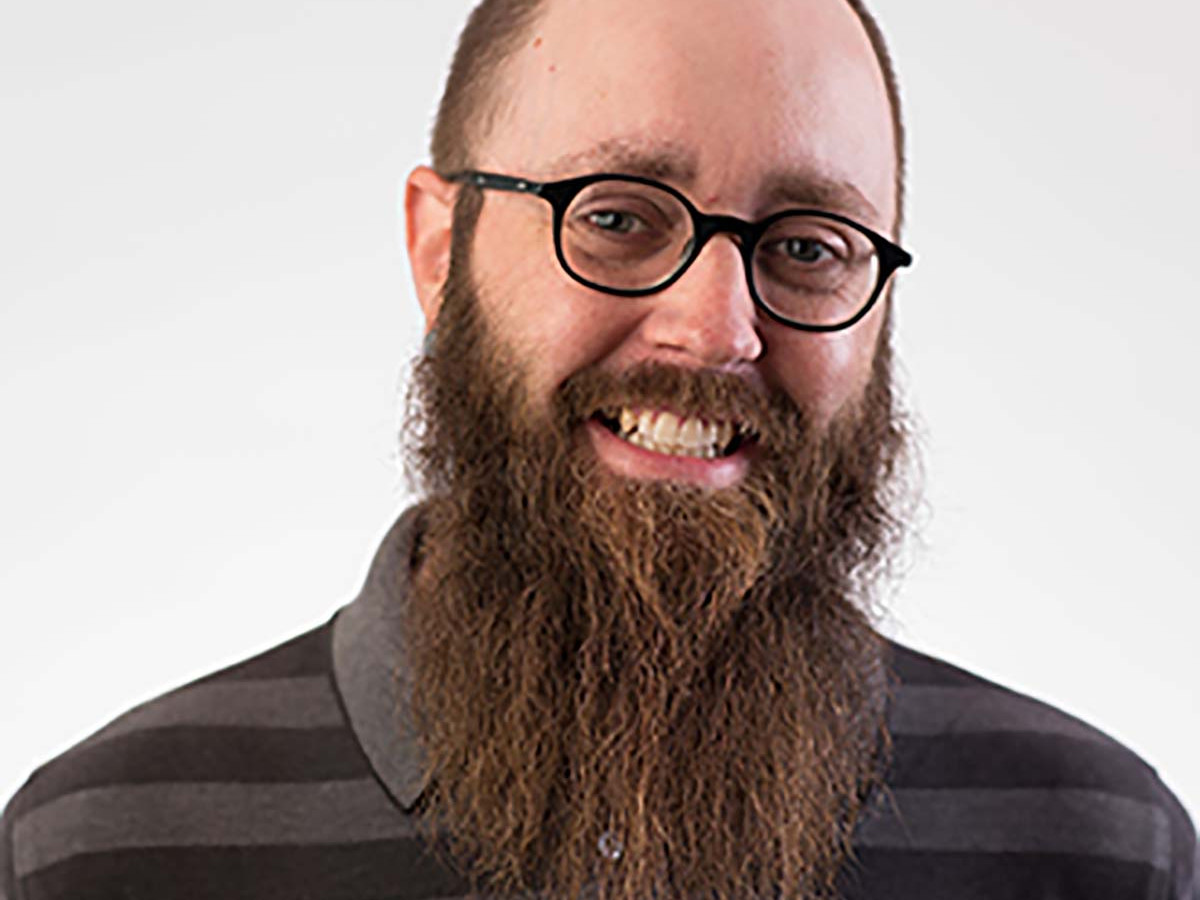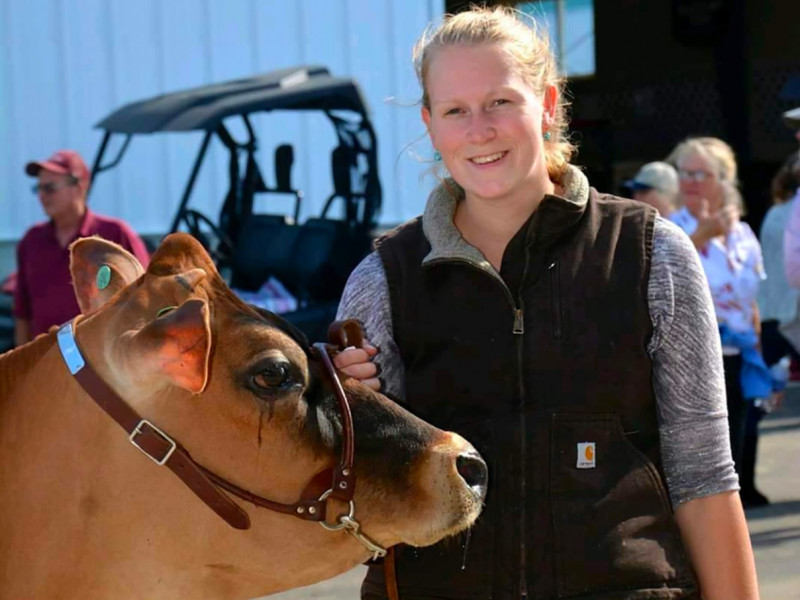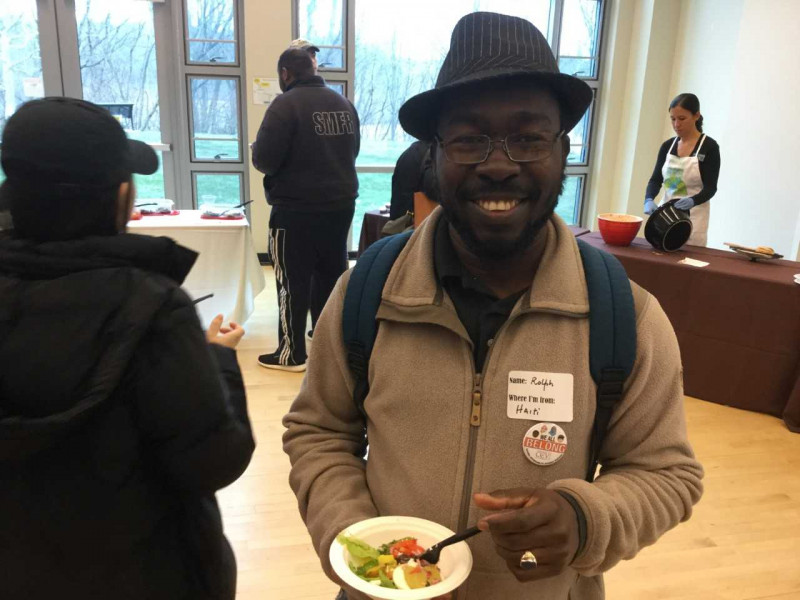
Growing up in Philadelphia, Warren Sides experienced diversity first-hand. But when he went to college in a rural part of Pennsylvania, he says it was “an eye-opener. You can’t just assume the world is as diverse and welcoming as your bubble may imply.” Seeing negative reactions to diversity and “being jarred by injustice” set the path for Warren’s career.
Warren received his bachelor’s degree in math and moved to Vermont to pursue a graduate program at the University of Vermont. As a grad student at UVM he was able to take courses and teach simultaneously. “That’s where I realized that teaching was a thing I, one, could do and two, actually kind of enjoyed,” Warren said. “I think it was more of just sharing what I liked about math with students that didn’t like it all that much. That’s probably the driving force for most of my teaching philosophy: I want to make them enjoy it…I would love for them to enjoy it.”
While at UVM, Warren joined a group on campus called START (Students Together Alleviating Racial Tension). He said although as a straight, white, middle class male he didn’t identify with a minority or marginalized group, he still wanted to help work on issues of social justice. Shortly after finishing his master’s degree, Warren started working at CCV as a math instructor, where he began to combine this passion with social justice with his education and career.
Warren’s first class at CCV was Applied Math Concepts, which he taught in-person. Throughout the years he has moved to teaching a variety of math classes in an online format, and has honed in on his teaching style. “I think we teach math backwards,” Warren said. “We learn what the answer is, but we don’t do a lot with the why or how.” Rather than just providing numbers and formulas for students, Warren tries to create greater discussions and a sense of community in his classes by focusing less on what the answer is, and more on the creative approaches each student takes to getting that answer. “In math it’s normally ‘let’s train every single person to do the same thing,’” he said. “But I’m like, ‘no, let’s all bring our unique differences and see how we can approach the same problem.’”
Also part of his teaching style is incorporating ideas of social justice into math, where these issues aren’t typically brought up. “I think it’s a cop-out and I think it’s wrong,” Warren said. “There are plenty of spaces to talk about it in a meaningful way, so I try.” Incorporating these ideas of social justice comes in multiple forms, such as bringing real-world examples into the class through news articles or teaching how math can be applied to the idea of diversity. One example Warren provided was using the concept of integers to determine optimal diversity in gentrified populations. He also looks beyond recent events, adopting the philosophy of “pushing further” into history and other cultures to explain where concepts he is teaching come from. “I think it’s important that everybody understands that these things are issues everywhere,” he said.
Warren also focuses on equity among students, understanding that factors like gender identity may influence the perspectives shared in class discussions. He offers various avenues of participation and gives each student the opportunity to learn using their own strengths by allowing multiple approaches to problem solving. In addition, he focuses on giving students the tools to talk about the issues of social justice and equity, to think intelligently, and to talk to others about these issues. When students complete his class, he hopes that they have “a basic understanding of what we’re doing, but more so a way to apply that understanding to whatever they might see in the world, or at least a desire to.”
Alongside his work at CCV, Warren has taught at other colleges across Vermont and continues to teach at Champlain College, thanks to the flexibility of online instruction. While each college is unique, “what I like about CCV is the students…they’re people who live in the world and are going to college as opposed to a more traditional college where they’re college students trying to exist in the world…it is a unique audience to convey my love of math.” He added that since students at CCV are “of the world” they can benefit from the flexibility, online resources, and sense of community that are provided through online classes.
Through his experiences as a CCV instructor, Warren can confidently say that “the stigma of community college is wrong…if [a] class is offered at the community college, take it there. I can vouch for it, it’s the exact same course. You’re not losing quality and the credits transfer.” Taking a math class at CCV with Warren Sides provides students with a “grassroots education,” giving them the tools they need to understand not only math, but other important issues in the world.
Registration for fall math classes is open! Visit ccv.edu/apply to apply today.



